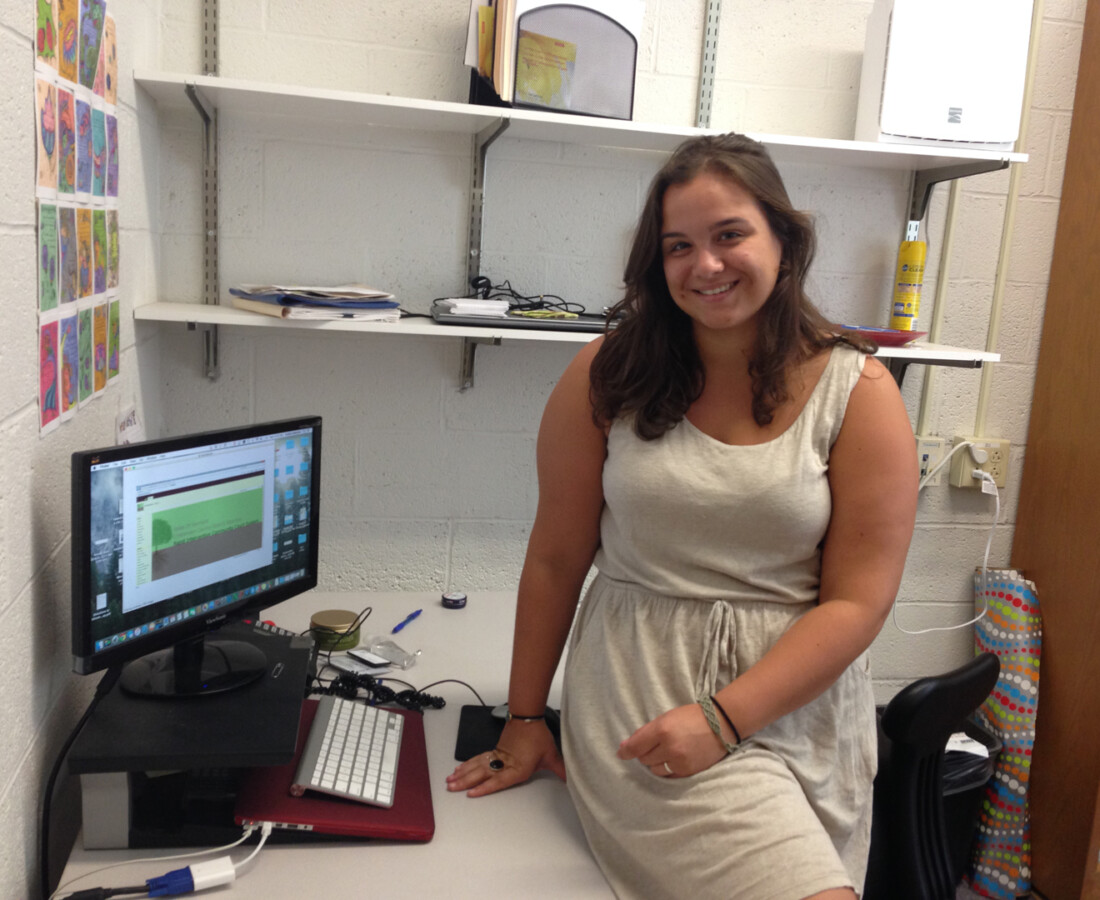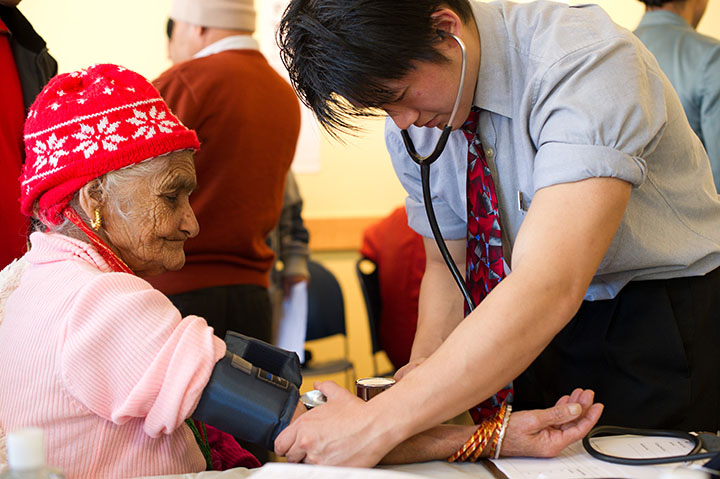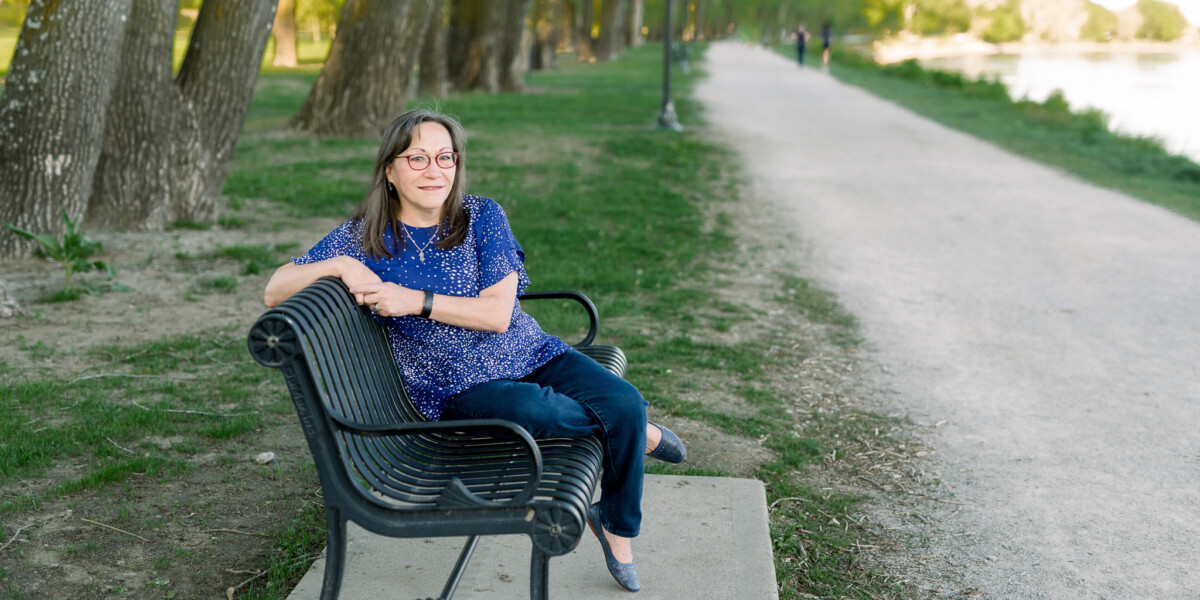Kristina Valentine wants to pursue a medical career so she can help others receive access to health care. Not an uncommon goal for a health care student, but the career Valentine wants is hardly a well-worn path. Specifically, the 24-year-old is interested in providing health care to people who are incarcerated or those who have recently been released from prison.
The McGill University graduate, who is currently enrolled in UVM’s Public Health Graduate Certificate Program, sees herself eventually practicing medicine in psychiatry, primary care, or reproductive health in a prison health care facility or in a community organization that frequently works with the justice-involved population.
On a Path to a Medical Career
Valentine now works as a project manager for MHISSION Translational Systems at UVM. MHISSION serves the veteran population, focusing particularly on veteran jail diversion, in addition to other criminal justice-related populations.
Founded by Dr. Thomas Simpatico of UVM, the program identifies at risk individuals and connects them with an appropriate array of service and treatment options to get them on a path toward recovery instead of a jail sentence. MHISSION uses a cross-organizational case management technology to create person and population-centric connections between police, corrections, the criminal justice system, hospitals, mental health providers, and housing providers.
While studying in the UVM Public Health Graduate Certificate Program this fall, Valentine is also applying to medical schools for fall 2016.
“Wherever I end up, I want to help those who are struggling most in my community and increase their access to health care,” says Valentine. “Ultimately, I want to try to make sure all individuals in my community have access to the services they need to succeed.”
One type of disparity Valentine has seen in her experience working at MHISSION is with people reentering the community after being in prison. These individuals often fall through the cracks once they get out of jail, and no longer get the health care services they were receiving while in prison, she says.
“This can be life-threatening for individuals. Without receiving treatment such as opiate replacement therapy, these individuals could go back to using street drugs. The days after reentry into the community are some of the most vulnerable of a substance reliant person’s life, and it is a time when they are incredibly susceptible to overdose,” she says.
Valentine explains that if the person released from prison is not reconnected with a physician in their local health care system, the individual will use the emergency room more frequently. “It’s important for there to be shared accountability and open communication between people working in the prisons and those who can connect a recently released person to needed services,” she says. In fact, MHISSION strives to facilitate this communication and help make sure individuals are receiving the care they need.
“As I attend UVM’s Public Health Certificate Program and plan on going to medical school, I think I can ultimately make a difference first and foremost by being willing to serve these individuals, as they generally are considered to be underserved,” she says. “I see a lot of disparities in who is able to access health care, and the outcomes of this. Reducing these disparities is one of the goals of public health, so I want to learn more about current initiatives to close these gaps and attain more of an understanding on how they came to be in the first place.”
As a physician, she hopes to be a nonjudgmental, compassionate, comforting presence to her patients and be involved with discussions about policy changes for health care access to underserved populations.
A Lifelong Passion for Health Care
Valentine was born at UVM Medical Center and grew up on Cape Cod. She majored in Psychology and minored in Social Studies of Medicine and English at McGill, where she graduated in 2013.
“I have always been interested in health care. Once in college, I became very focused on becoming a socially conscious physician. Doctors are in a role where they can heal patients and — through public health initiatives — entire populations,” she says. “I think optimism is the number one characteristic one needs to do this type of work. I don’t think anyone can look at situations as black and white. People in prison have often done bad things, but it is detrimental to assume that being in prison makes them bad people.”





